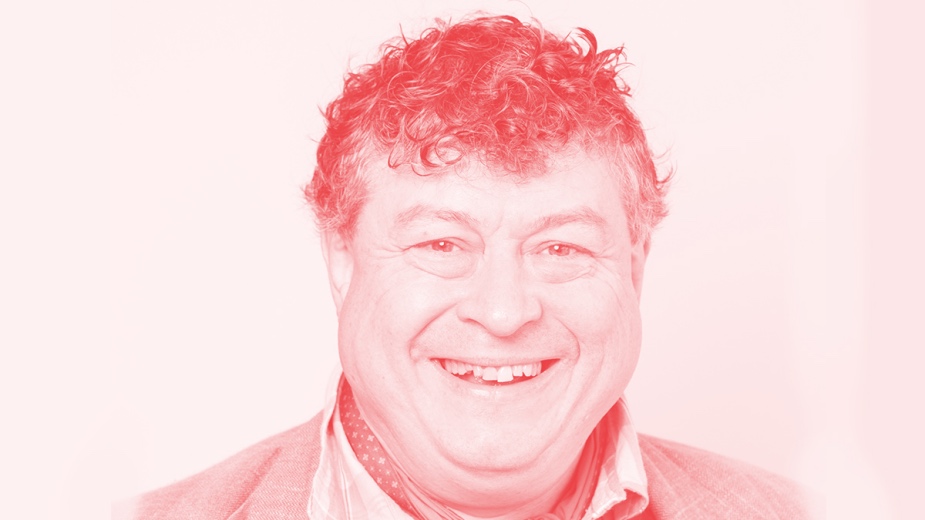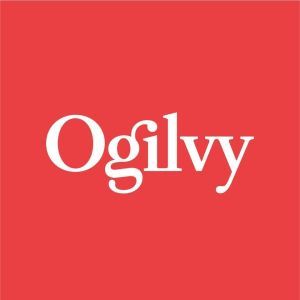
“Our Faith in Science Has Been Rightly Knocked”

“I have a very cheeky comment, which is that if most of the foreign travel and entertainment costs had been incurred by junior staff, not senior staff, people would have been forced to video conference five years ago,” chuckles Ogilvy’s vice chairman seditiously.
Lockdown has forced the industry to pick its feet up and adopt changes that it has been leaving on crumpled up to-do lists at the bottom of handbags at the back of the closet. Working from home, cutting down on travel and carbon footprint, unyoking young talent from expensive capital city rents. Adaptations that have been otherwise brushed off as too complicated have turned out to be a lot more do-able with a global pandemic lighting a fire under our collective backsides.
So, given his renowned enthusiasm for psychology and the behavioural sciences and the fact that Ogilvy has just hosted its first ever online version of its annual behaviour change festival Nudgestock, what does Rory Sutherland think was getting in our way?
As his example of business travel suggests, it’s all about the incentives built into the way we do business that are not always aligned with what we want to achieve. Take working flexibly, from home or outside the office – it’s something Rory says he has tried to encourage people to do as a greater variety of environments, he believes, enriches the creative product.
“Nobody ever did. I realised it was framed as a concession, so you felt you're burning up reputational capital every time you took advantage of it,” he says.
To date, frequent business travel and performative presenteeism have bound up in ‘status seeking’ behaviour. But in one swoop, those measures of success and commitment have been shown to be rather arbitrary.
“Suddenly our inability to hire someone who isn't either willing or able to pay London property prices is a huge sort of self-imposed restriction,” says Rory. “That and the fact that people on the political right burble on about tax rates, but after our staff has paid tax, 50% of their money in London goes on accommodation and transportation. Well, I mean, that's rubbish, isn't it? I mean, you know, the way to enrich our staff is to free them from that, really.”
While he’s keenly aware of the inequities of lockdown, for Rory, a long term advocate of videoconferencing (or "Zoom Zionist" as he quips), this has been a chance to engage in more meaningful international conversations. He’s been working with and giving talks to Ogilvy offices around the globe and is rather enjoying the chance to cut out many of the daily stresses to improve the focus on the creative work. Meetings can be open to a greater range of voices, he says they’re more egalitarian, they have less of a tendency to drag on. “My actual working life is the life of a not-very-diligent Victorian clergyman,” he laughs. “It's the other stuff that really is grim.”
And if the industry can use the disruption of the pandemic to question its ‘misaligned incentives’ when it comes to working from home or travel, what about the other major issue facing the industry: a lack of diversity that, according to a recent IPA survey, is getting worse.
One option is radical action, for example committing to only hiring black and Asian and minority talent for two years – something Rory feels he’s unlikely to persuade the agency to go for, though he suspects reaching a critical mass quickly would solve a lot of underlying issues.
Otherwise, another approach he posits is to address the ‘choice architecture’ – the motivators that underpin the decisions around hiring and promotion. Hiring to fill single roles encourages those making the decisions to opt for conformity – those who look the same and come from the same background – while, says Rory, hiring in groups encourages decision makers to look for complementarity, a broader range of traits. Rory confides that he got his break at Ogilvy thanks to this.
“People tell me afterwards what happened back in 1988. They’d said, ‘look, we’ve got these three other candidates, but let's take a punt on the weirdo’.”
It would also be helpful to ensure that shortlists have more than one person from a BAME background – when a candidate is the sole black person or woman on the list, that difference frames them as an outlier and therefore less likely to be hired. “Once it’s up to two, the whole dynamic changes,” reveals Rory.
Ultimately, hiring people from a greater variety of backgrounds and with less conformity increases the chance of unearthing exceptional talent – but that’s not what’s incentivised. Variety is framed as risky and unconventional, and people seek not to make the best decision for the business but the decision that they might get blamed for.
“A low variance hire won’t be the most inspiring hire in the world but it won’t be a disaster,” says Rory. “But actually you want people making high variance hires because ultimately the future of your company depends on the 20% of the most remarkable people within the building five years later.”
So if behavioural science and psychology can offer up some solutions to long standing organisational and structural problems in the creative industries as it picks its way through anomalous times, neither is science a panacea. As the cliché goes, ‘data is the new oil’ – businesses and governments crave certainty, after all. But, let’s not forget that the cost of crude oil dropped below zero in April. The path of the pandemic has been and will be shaped by unknowns and businesses have had to rely on adaptability, creativity and innovation to make it through.
“Our faith in science has been rightly knocked,” declares Rory, surprisingly, perhaps.
“The reason I say that is because I think there's a general hubris in the early 21st century; that we know everything there is to be known, and it is just a question of modelling it and coming up with the correct answer,” he explains, referencing the Nobel acceptance speech by economist Friedrich Hyeck, ‘The Pretence of Knowledge’. “It’s at work in almost everything. There are a load of factors, which are impossible to express numerically, which don't fit in the model, which are various butterfly effects, counter-intuitive, unexpected. And so the need for creativity as opposed to what you might call rigour, I would like to see as a result of this.”
Ultimately science is valuable as a source of understanding and options – not as a proxy for control. “Once you consider the complexities of human psychology and behaviour, it doesn't necessarily provide you with single, direct answers, which is what business wants. What it does is it expands the possible solutions space by a factor of 10,” says Rory.
And there’s no question that lockdown has, for anyone with an interest in the human psyche, been a live, global study in behaviour change. It’s unlikely that our deeper drives and motivations will magically transform after a few months of lockdown, but this is a chance to understand those drives and, perhaps, re-frame and refocus them for the better.
“A lot of behaviour will bounce back, but manifest itself differently. I always say there's a human nature of change very much, but the currency it uses and the way in which human urges manifest themselves patently does change... Status seeking probably isn’t going to go away, but my hunch would be, there's going to be a future market for really, really high end video conferencing equipment.”













